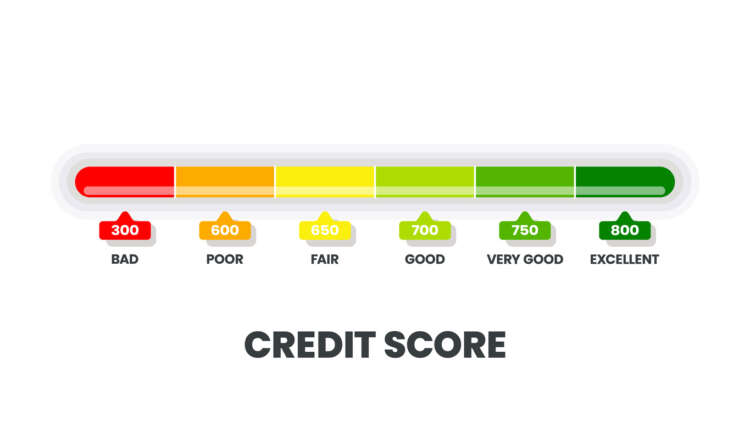Finance
Credit Monitoring: How to Keep Track of Your Credit Score and Report

Credit Monitoring: How to Keep Track of Your Credit Score and Report
Credit monitoring is a process of regularly checking your credit score and report to stay aware of any changes or discrepancies in your financial history. As we know, a good credit score is essential for obtaining loans, credit cards, and even renting an apartment. Therefore, maintaining a good credit score is crucial to your financial well-being. In this article, we will discuss the importance of credit monitoring, how to monitor your credit score and report, and tips for improving your credit score.
Definition of Credit Monitoring
Credit monitoring is the process of keeping track of your credit score and report regularly. This process allows you to monitor any changes that may occur in your credit score and report, such as new accounts or late payments. Credit monitoring is an important tool that can help you stay aware of your financial history and ensure that your credit score remains healthy.
Importance of Credit Monitoring
Credit monitoring is essential for several reasons. Firstly, it helps you detect identity theft or fraud early. Identity theft is a growing problem, and if someone steals your identity, they can use your credit to obtain loans or credit cards. Regular credit monitoring helps you catch any unauthorized activity on your credit report, allowing you to take action quickly to prevent further damage to your credit.
Secondly, credit monitoring helps you keep track of changes in your credit score. Your credit score can change regularly based on various factors, such as the amount of credit you use, late payments, and new accounts. Monitoring your credit score can help you identify any changes, allowing you to take steps to improve your credit score.
Lastly, credit monitoring can help you make better financial decisions. When you monitor your credit, you can see how your financial decisions affect your credit score. This information can help you make better decisions about applying for credit or taking on new debt.
Understanding Your Credit Score and Report
Before discussing how to monitor your credit, it’s important to understand what a credit score and report are.
What is a Credit Score?
A credit score is a three-digit number that represents your creditworthiness. It’s used by lenders and other financial institutions to determine how likely you are to repay debt. A higher credit score indicates that you are a lower risk borrower and may qualify for better loan terms and interest rates.
What is a Credit Report?
A credit report is a detailed summary of your credit history. It includes information about your credit accounts, payment history, and public records, such as bankruptcies or foreclosures. Credit reports are used by lenders and other financial institutions to evaluate your creditworthiness.
What Information is Included in a Credit Report?
Credit reports typically include the following information:
Personal Information: Your credit report will include your personal information, such as your name, address, date of birth, and Social Security number. This information is used to identify you and ensure that your credit report is accurate.
Credit Accounts: Your credit report will list all of your credit accounts, including credit cards, loans, and mortgages. This information will include the name of the creditor, the date the account was opened, the credit limit or loan amount, and the current balance.
Payment History: Your credit report will include a detailed history of your payments on each credit account. This information will include the dates of each payment, the amount paid, and whether the payment was made on time or was late. Late payments, missed payments, and defaults will also be included in this section.
Public Records: Your credit report may include public records, such as bankruptcies, foreclosures, and tax liens. These records can have a negative impact on your credit score, so it’s important to review them carefully.
Credit Inquiries: Your credit report will include a list of all the inquiries made on your credit report, including inquiries made by lenders or other financial institutions when you apply for credit. Hard inquiries, which occur when you apply for credit, can have a negative impact on your credit score, so it’s important to monitor them carefully.
How is a Credit Score Calculated?
Your credit score is calculated based on several factors, including:
Payment history: Your payment history makes up 35% of your credit score. This factor considers whether you’ve paid your bills on time and if you’ve missed any payments.
Credit utilization: Credit utilization makes up 30% of your credit score. This factor considers how much of your available credit you’re using. It’s recommended to keep your credit utilization below 30%.
Length of credit history: The length of your credit history makes up 15% of your credit score. This factor considers how long you’ve had credit accounts open.
Types of credit: The types of credit you have make up 10% of your credit score. This factor considers whether you have a mix of credit accounts, such as credit cards, loans, and mortgages.
New credit: New credit makes up 10% of your credit score. This factor considers how many new accounts you’ve opened recently and how many credit inquiries you have.
Factors that Affect Your Credit Score
Several factors can affect your credit score, including:
Late payments: Late payments can lower your credit score, so it’s important to pay your bills on time.
High credit utilization: Using too much of your available credit can also lower your credit score. To improve your score, try to keep your credit utilization below 30%.
Length of credit history: Having a longer credit history can improve your credit score, so it’s best to keep old credit accounts open.
New credit applications: Applying for new credit frequently can lower your credit score, so it’s best to limit credit applications to only when necessary.
Errors on your credit report: Errors on your credit report can negatively impact your credit score, so it’s important to check your credit report regularly for accuracy.
Benefits of Credit Monitoring
Early Detection of Identity Theft or Fraud
Credit monitoring can help you detect identity theft or fraud early. If someone steals your identity, they may open new accounts in your name, which can lower your credit score. Monitoring your credit regularly can help you catch any unauthorized activity, allowing you to take action quickly to prevent further damage to your credit.
Keeping Track of Changes in Your Credit Score
Your credit score can change regularly, based on various factors. Monitoring your credit score can help you keep track of any changes, allowing you to take steps to improve your credit score.
Better Financial Planning and Decision-Making
Monitoring your credit can also help you make better financial decisions. When you monitor your credit, you can see how your financial decisions affect your credit score. This information can help you make better decisions about applying for credit or taking on new debt.
How to Monitor Your Credit
Obtaining a Free Credit Report
You are entitled to one free credit report from each of the three major credit bureaus (Equifax, Experian, and TransUnion) every 12 months. You can obtain your free credit report by visiting AnnualCreditReport.com. Reviewing your credit report can help you identify any errors or unauthorized activity on your credit report.
Monitoring Credit Score Through Credit Bureaus or Credit Monitoring Services
You can also monitor your credit score through credit bureaus or credit monitoring services. Credit bureaus, such as Equifax, Experian, and TransUnion, offer credit monitoring services that allow you to monitor your credit score and report regularly. There are also several third-party credit monitoring services, such as Credit Karma or Identity Force, that offer credit monitoring services.
Setting Up Alerts for Changes in Credit Report or Score
Many credit monitoring services allow you to set up alerts for changes in your credit report or score. These alerts can notify you of any changes, such as a new account or a change in your credit score. Setting up alerts can help you catch any unauthorized activity on your credit report, allowing you to take action quickly to prevent further damage to your credit.
Tips for Improving Your Credit Score
If your credit score is lower than you’d like, there are several steps you can take to improve it, including:
Paying Bills on Time
One of the best ways to improve your credit score is to pay your bills on time. Late payments can lower your credit score, so it’s essential to pay your bills on time.
Keeping Credit Card Balances Low
High credit card balances can also lower your credit score. To improve your score, try to keep your credit card balances below 30% of your credit limit. If you’re struggling to pay off your credit card balances, consider making larger payments or consolidating your debt with a personal loan.
Reducing Credit Applications
Applying for credit frequently can also lower your credit score. To improve your score, try to limit credit applications to only when necessary. When you do apply for credit, make sure to apply for credit that you’re likely to be approved for.
Disputing Errors in Your Credit Report
If you find errors on your credit report, you can dispute them with the credit bureau. Disputing errors can help improve your credit score if the errors are corrected.
Final Thoughts and Recommendations
To make the most of credit monitoring, consider using a credit monitoring service or checking your credit report and score regularly. Take action to correct any errors or unauthorized activity on your credit report, and make sure to follow good credit habits to maintain a healthy credit score. Finally, remember that credit monitoring is just one part of a healthy financial life. It’s essential to maintain good financial habits, such as budgeting and saving, to achieve long-term financial stability.
In conclusion, monitoring your credit is essential to maintaining a healthy credit score and report. Your credit score affects many aspects of your financial life, including your ability to get approved for credit and the interest rates you’ll pay on loans and credit cards. Regularly monitoring your credit can help you catch any unauthorized activity on your credit report, keep track of changes in your credit score, and make better financial decisions. Remember to pay your bills on time, keep your credit card balances low, and limit credit applications to improve your credit score. By following these tips and monitoring your credit regularly, you can ensure that your credit stays healthy and strong.

-
Business4 days ago
Developing a Response to a PR Crisis
-
Top Stories3 days ago
Insurers flee climate alliance after ESG backlash in the U.S
-
Business3 days ago
This is Milk hires fresh talent with 15 new jobs as growth continues
-
Top Stories3 days ago
Engie, Amazon inaugurate Italy’s biggest agrivoltaic farm










